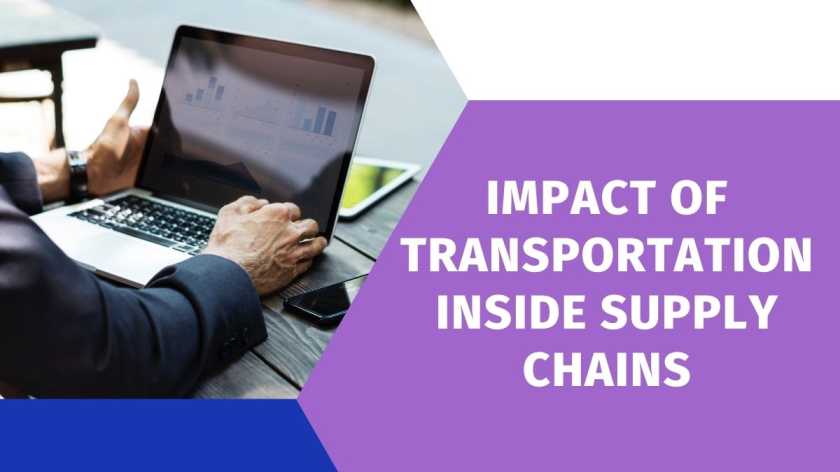Supply Chain Management organizes the flow of goods and finances related to a product or service, from obtaining raw materials and their conversion to finished products and delivering them to the end user. A company creates a link of suppliers responsible for the product's movement to the customer. The supply chain has three main parts: Purchasing, Manufacturing, and Transportation which streamlines the entire process.
Earlier supply chain management models were rigid, with every chain having to be accessed in a consecutive manner, but recent advancements in the field indicate flexibility in the process. With the introduction of automation and internet-connected sensors, the industry is prone to attacks by hackers, so it’s important for drivers to use the latest software and security tactics. Due to the rapid advancement in e-commerce along with the introduction of the latest technology like AI and blockchain, the demand for supply chain professionals continues to increase.
A career in supply chain management has a wide range of scope, with various job titles being added every day as per the requirement, with each one having job stability and satisfaction.
In this blog, we will address the impact of transportation on supply chains, its role in the smooth functioning of supply chain management and supply chain performance.
Transportation in Supply Chain Management
Transportation is not a mere medium of transporting goods from one place to another. It is responsible for the smooth functioning of operations in the supply chain. Transportation plays an important role in increasing the efficiency rate of your operations by procuring the raw materials needed for the operation. A better transportation facility gives the company an edge over the competition. Let's look at the characteristics of transportation in an effective supply chain.
Better Inventory Flow: Taking stock of the inventory is crucial to avoid dead stock, acute shortage of goods, and increase in costs. Poor inventory management can have a negative impact on the bottom line of the business. Streamlining the process of transportation and taking stock of your warehouse to enhance the flow of goods can cut down on costs. Balance the inventory based on demand and supply.
Customer Satisfaction: Timely delivery of products in good condition is an essential part of supply chain management. Transportation is one of the few key areas where companies can directly interact with consumers. Ensuring deliveries on time while undertaking quality control and checks to avoid delays increases customer satisfaction.
Reducing Geographical Barriers: The success rate of your supply chain depends on employing an appropriate mode of transport. Sometimes, it's difficult to check all the boxes due to geographical and infrastructural challenges. Choose a way of transportation that can travel seamlessly to remote terrains and areas. A fleet of trucks is best for local businesses as they bypass transport lines.
Integrated Technology Systems: Supply chain visibility requires the integration of systems operating between many elements. Some elements have different reference data that must be utilized. The master data or reference data must be coordinated with other forms of data that have to be used. The multiple systems, ERPs, are spread across different geographies. These elements must be meticulously glued together efficiently and cost-effectively.
Role of Transportation in Supply Chain
Every step of the supply chain is linked together through transportation since raw materials move from dealers to the manufacturing unit to, finally, the consumers. If you don't have a proper strategy for economical and stable transportation, the companies incur a loss. Having a well-thought-out transportation plan is essential to grow your business. It includes creating a connecting web of distribution and a concrete method for receiving goods and delivering finished products. Let's see how transportation is essential in a supply chain.
Decreased Costs: Business operation costs are always at the higher end. With careful planning, one can cut down on costs. There are different mediums of transportation. Fuel costs and weight involved in each type of transport will vary. To decrease the cost of such logistics, conducting a full audit is advised.
Priority-based segmentation: The key to understanding transportation in a better way is understanding the various degrees of priority shipments must have. Receiving some goods on preference may be more vital than receiving all packages simultaneously. That is the reason why priority has to be assigned to different customers; product type is vital.
Improved Customer Service: The customer should be assigned the first priority in a supply chain. Securing the transportation lines is one way to ensure that shipments reach the customer at the right time and in proper condition.
Transport Management System: Transport Management System or TMS is a software specializing in tracking transportation networks. TMS streamlines the transportation process, making it suitable for businesses to ship by any route. Using a single platform, you can successfully track route planning, fuel costs, and customer communication.
Utilizing different mediums of transportation: One way of reaching the global market is to exploit different modes of transportation. A combination of other mediums and finding the shortest route to make the product available worldwide.
Boosts Economy: Meticulous planning not only increases the reach of transportation but also positively impacts that country's economy. Global trade is expanding as trade lines are getting blurred.
Conclusion
The COVID-19 pandemic affected global commerce, and the need for supply chains that are resilient, agile, and sustainable arose. Professionals who develop and manage complex global networks are highly in demand. In this competitive market, a supply chain course that will help you adapt and transform your business using cutting-edge technologies and an analytical approach that reduces costs will significantly help you upscale yourself and your business.
Upscale yourself with a supply chain management course such as the Advanced Certificate In Supply Chain Management And Analytics offered by Imarticus Learning in collaboration with IIT Roorkee.








